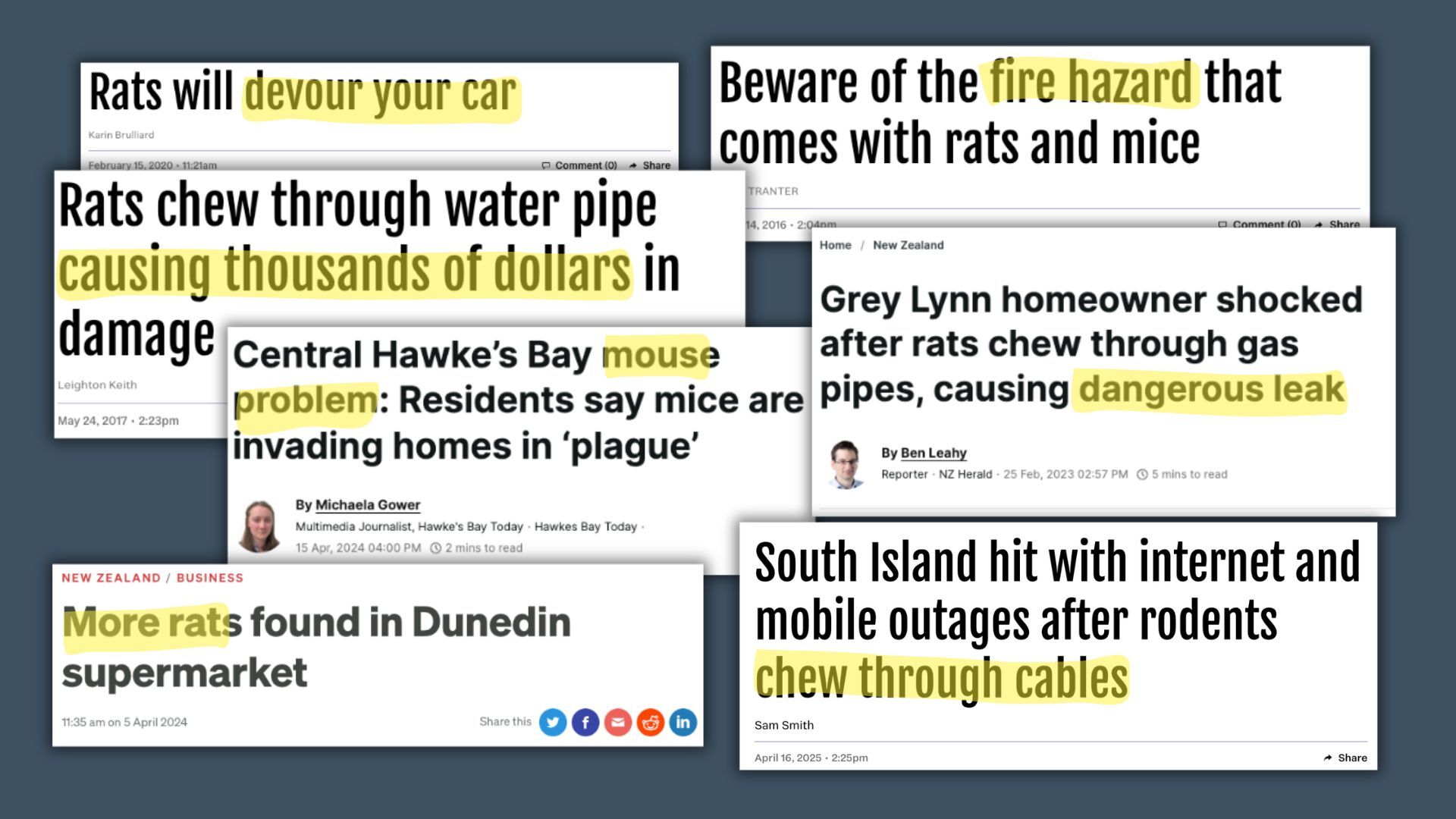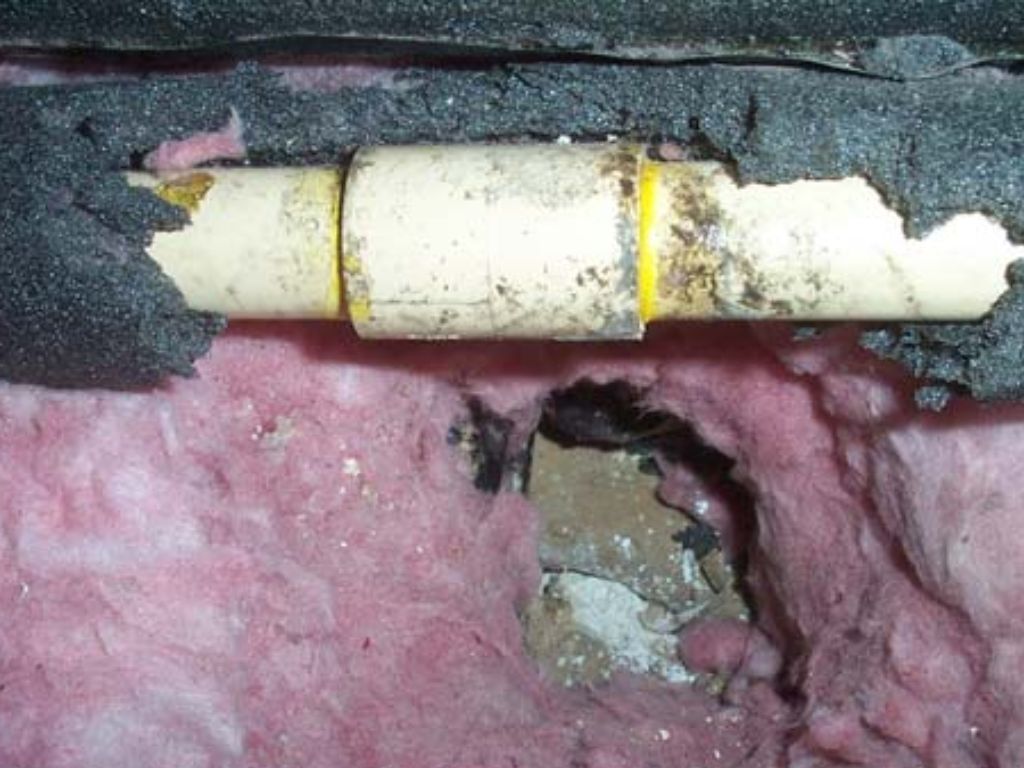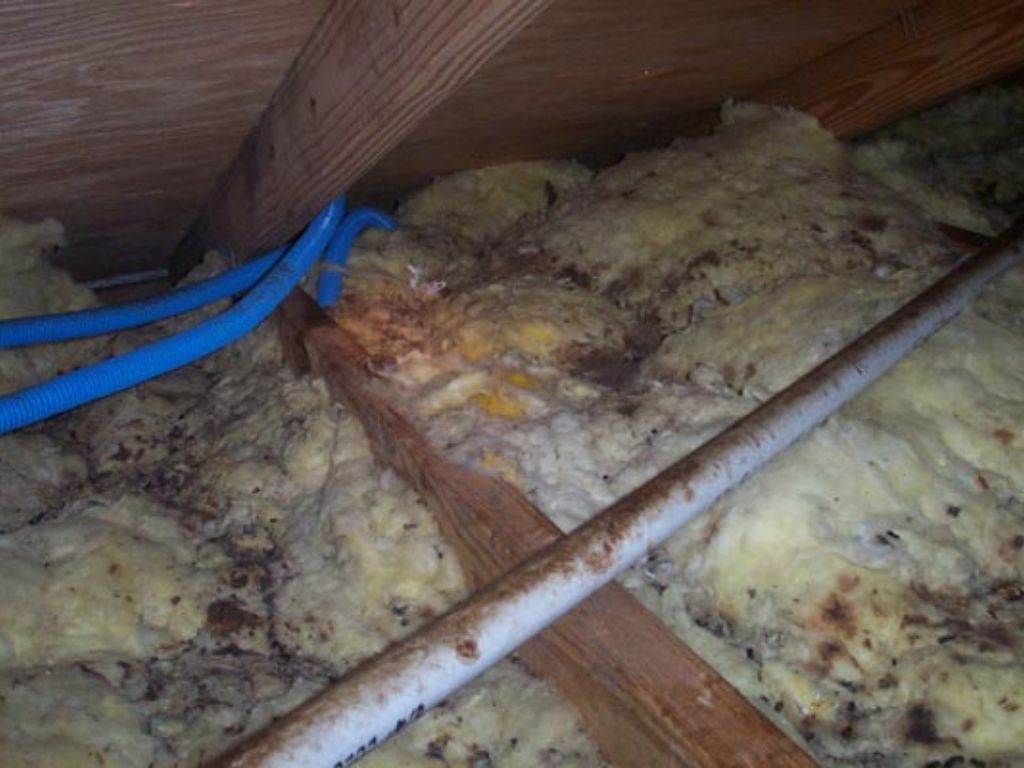When cold weather pushes rats and mice indoors, infestations happen. Rodents cause damage by chewing through wiring, timber, insulation, and pipes. The bad news? Most insurers won’t cover the costly repairs. The good news? You can prevent it.

Unless he’s an animated mouse in a red shirt named Stuart or Remy cooking ratatouille in the kitchen, it’s in everyone’s best interest to prevent rodents from coming inside.
Owen Stobart from Aces Pest Control in Auckland says rodent damage can vary from minor to potentially lethal. No matter the scale, it’s usually costly to fix.
Uninvited houseguests with costly consequences
Minor damage caused by rodents can initially go unnoticed but will worsen over time.
The insulation under houses and in walls or ceilings is a perfect nesting ground for rodents–
once they rip it to shreds, that is.
“This often results in the insulation being pulled down, so it no longer warms your home effectively,” says Owen.
Rats’ incisors grow several inches a year, so they chew on materials to grind them down to stay pain-free.
Some rodents will perform DIY dentistry on live 240-volt wires.

That’s right, the rodent will chew down to the bare copper, get a 240-volt shock, and then do it again… and again, creating a hazardous fire risk and power outages.
“I find myself looking at all these bare, exposed copper wires, shaking my head,” Owen says.

One Auckland homeowner made headlines after rats chewed through piping while he was on holiday, causing a major gas leak.
Rodents also go for water pipes to satisfy their habitual chewing habits.
“It’s a helpful habit, but when the water starts coming out like a fountain, it’s not so good for you,” says Owen. Floods in attics, walls, floors, kitchens and bathrooms are all possible with furry little mice around.
Owen has seen “hundreds of thousands of dollars of damage from floods” as a pest controller. The Insurance Council of New Zealand notes that rodent and vermin damage is “typically excluded under most standard household and motor policies.” Check their consumer guide for more details.
Owen adds that “rats carry diseases,” reminding us that rodent control protects not only our wallets but also our health.
How to smell a rat
The most common rat in Aotearoa is the ship rat, which will most likely be heard before they’re seen.
Keep an ear out for scuttling noises above you, this may be the only sign you’ll get as these rats are very shy and “will do anything not to meet you or your family.”
Owen says the second most common sign is rat scat in the attic, so it wouldn’t hurt to check for this occasionally, too.
Protect your household
While pest controllers are readily available in most towns and cities, you can also take matters into your own hands.
Owen shares his tips, which he learned from the pest control “superstar” Dr. Bobby Corrigan, an urban rodentologist who runs the New York City Rat Academy. (Yep, it’s a real thing.)
Firstly, three key areas must be identified to defeat any indoor rodent issue: access points, nests, and sebum trails. Sebum is the grease coating on a rodent’s fur, made of dirt and oil buildup.
What does a sebum trail look like? As if someone has smeared Marmite on a rafter or pipe (or Vegemite, depending on your preference).
Once these areas have been found, snap traps and baits are the main controls.

If using traps, Owen’s key tip is to place them unset with lure on the sebum trails for seven days to let the rodents get used to them first. Several types of humane snap traps are available from the Predator Free New Zealand Trust’s online shop.
“All you need is a keen eye, a bright torch and a bit of determination,” says Owen.
When your furry invader plan is ready, remember to wear protective gear. Owen suggests that gloves and knee pads are the minimum that should be used. Equally important, remember to ensure the plan also excludes children and pets. If your trap is put in a place kids and pets can access, house it in a tunnel.
Being vigilant about rodents will save time and money in the long run and bring peace of mind to daily life. You can also try catching the rats before they enter your home with backyard trapping.
As a bonus, many of NZ’s native wildlife species will benefit as rodents not only prey on them but compete with them for food, too.

